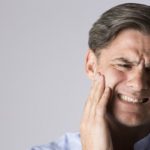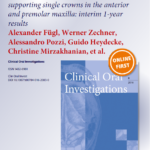What’s Oral Cancer?
Oral cancer is a serious disease that consists of the development of abnormal body cells in the oral cavity. The tongue, gums or oropharynx are the most common areas that this cancer will develop. According to Cancer.org, the 5-year survival rate for people diagnosed with oral cancer is 64%. Although, when this cancer is detected early, the chances of survival are increased.
Oral cancer is preventable if you understand the triggers of this disease. Some factors that can lead to oral cancer are the overconsumption of alcohol and excessive smoking. Consequently, those 2 factors are not the only ones that can provoke this horrible disease. See below to view other risk factors.
- Age – The chances of developing oral cancer increases with patients who are over 40 years old.
- Sun exposure – Chances of developing cancer on the lips are heightened if a person is frequently exposed to the sun.
- Diet – If you eat fewer fruits and vegetables your chances of developing oral cancer is heightened.
- HPV (Human Papilloma Virus) – This disease has been linked to the development of oral cancer.
How Is Oral Cancer Detected?
There is a list of test and procedures that are used to detect oral cancer. A critical issue with this kind of cancer is that many of the early stages can go unnoticed. There are many ways that one can self-detect the chances of having oral cancer. One is to have a physical exam or a biopsy conducted by a doctor.
Becoming aware of all of the signs and symptoms of oral cancer can have a great influence on the likelihood of catching cancer at its early stages. See below to view noticeable symptoms of oral cancer.
Oral Cancer Signs & Symptoms
- A sore throat, loose teeth, hoarseness
- Swelling of the Gum
- Lump or thickening in the cheek
- Difficulties chewing, swallowing or moving the jaw or tongue
- Bleeding of the mouth
- Mouth sores
- Earaches
- Numbness or tenderness anywhere in the mouth
- Loosening of the teeth,
If your doctor suspects that you may have oral cancer, they will take a sample of the questionable tissue for laboratory testing called a biopsy. If diagnosed, the doctor will work with the patient to determine the stage of cancer and will provide further steps.
Keep Your Mouth Healthy?
Brushing your teeth and gums twice a day will help maintain a healthy smile. Dentists often recommend using a soft toothbrush to prevent scrapes or injury to the mouth while keeping the mouth clean. It’s a great idea to familiarize yourself with the right brushing techniques for proper teeth brushing routine.
In addition to brushing, flossing your teeth daily is critical if you want to have a lasting smile. It is suggested by many dental professionals to use a fluoride toothpaste or a special sensitive toothpaste to ensure a lasting oral health.
A regular 6-month checkup with your dentist can rule out whether symptoms are cancerous or not. There are times some of these symptoms signify other health issues that are not oral cancer. If you have these symptoms, contact your doctor or dentist and get a proper diagnosis to begin treatment if needed.
What Can Increase the Risk Of Oral Cancer?
Alcohol – Alcohol is the second largest risk factor in the development of oral cancer. Individuals who excessively drink are likely to develop this disease along with many other health complications.
Tobacco – According to the American Lung Association, there are at least 69 chemicals in cigarettes that have been found to cause cancer including ammonia, acetone and even tar! The best regimen is to quit smoking. In fact, the minute that you quit smoking the carbon monoxide levels lower instantly and the blood pressure returns to normal levels.
Personal History – If oral cancer runs in the family, the chances of contracting it are slightly higher. According to the Cancer Treatment Centers of America, some genetic mutations in the body may carry a high-risk of oral and oropharyngeal cancer in a patient.
Poor Diet – Up to half of all mouth cancers are linked to poor diet. This is triggered by a lack of vitamins and minerals that help fight off diseases. Eating a healthy diet of fruits and vegetables that are filled with vitamins and minerals such as vitamins A, B or folic acid are essential for keeping this disease away.
Human Papillomavirus (HPV) – These viruses are passed through sexual contact. Typically, when oral cancer develops on the tip of the tongue or in the tonsils is a direct result of having HPV. Every day in the United States over 12,000 people (ages 15-24) are infected with HPV and some might not even know they have it!
How Can Oral Cancer Be Treated?
If you are diagnosed with oral cancer, a doctor may recommend chemotherapy or radiation therapy and sometimes a combination of both treatments.The side effects of chemotherapy and radiation can vary for each individual. The most common side effects are tooth decay or trouble swallowing food (but it’s not limited to this).
After chemotherapy, radiation, or surgery, a regular check-up is conducted to prevent cancer from relapsing. Learn about the available options and have an appropriate cancer screening a mouthwash to your daily regimen. This habit can not only help you prevent gingivitis and it can keep your breath smelling fresh.
Contact Us Today
Oral cancer is a serious disease is a that can be prevented with proper oral and bodily care. If you have any questions in regards to your oral health or have a further inquiry on oral cancer please call our dental professionals at Perio NYC today. Our skilled doctors help patients maintain a great oral health.


